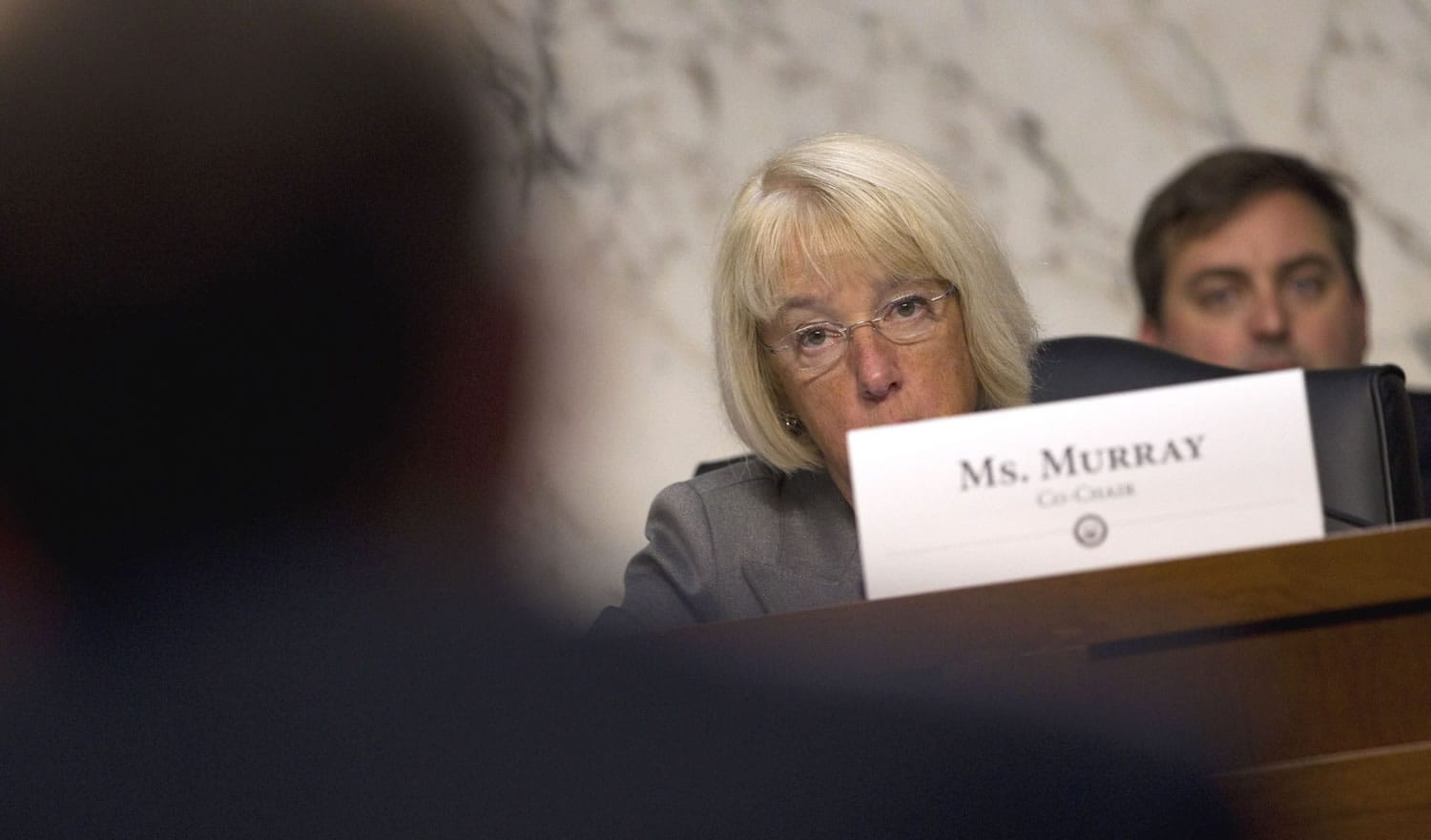WASHINGTON — Members of Congress’ bipartisan deficit-cutting “supercommittee” tasked with finding $1.5 trillion in deficit reduction by Thanksgiving got a sobering assessment Tuesday of the daunting task ahead.
“The nation cannot continue to sustain the spending programs and policies of the past with the tax revenues it has been accustomed to paying,” testified Douglas Elmendorf, director of the nonpartisan Congressional Budget Office. “Citizens will either have to pay more for their government, accept less in government services and benefits, or both.”
With Elmendorf as its guide, the committee of six Democrats and six Republicans from the House of Representatives and the Senate was given a tour of the nation’s economic landscape. It wasn’t a pretty picture.
Elmendorf warned that if current policies don’t change, the combination of the nation’s aging population and escalating health care costs will drive federal spending well past the revenues that the federal government collects. This year’s deficit alone is estimated at $1.3 trillion.
His bleak assessment was accompanied by a dismal CBO economic forecast that the weak economy will keep the unemployment rate around 9 percent through the end of 2012.
To make matters worse, the Census Bureau reported Tuesday that the nation’s poverty rate jumped to 15.1 percent, the highest rate since 1993. According to the bureau, 46.2 million Americans lived in poverty last year, an increase of 2.6 million from 2009.
“The economic outlook remains highly uncertain, however,” he told the committee. “The recent recession was unusual compared with previous ones in terms of its causes, depth and duration. As a result, the recovery has had unusual features that have been hard to predict, and the path of the economy in coming years is also likely to be surprising in various ways.”
With all the bad news as a backdrop, the committee spent its second meeting pondering how America got into this mess, now more than $14 trillion in debt, and how it’s going to get out of it.
Several members staked out familiar lines, with Republicans pointing at the rising costs of entitlement programs such as Medicare, Medicaid and Social Security.
“We have a spending-driven debt crisis,” said Rep. Jeb Hensarling, R-Texas, the committee co-chair, echoing GOP sentiments that Congress has a spending problem, not a tax problem.
Democratic members blamed the debt largely on the costs of the wars in Iraq and Afghanistan and the tax cuts initiated by former President George W. Bush.
“Today we will hear about how we lost our way,” said Rep. Xavier Becerra, D-Calif., espousing his party’s mantra that tax breaks for wealthy Americans and corporations was a key culprit to the debt problem. “To heal this country’s long-term fiscal situation we need to ask ourselves whether it’s the senior citizen, the student or the Wall Street banker who received the benefits of this spending binge.”
The committee has until Nov. 23 to come up with recommendations to reduce deficits over the coming decade by at least $1.2 trillion, and hopefully by $1.5 trillion. Congress then will have a month to approve the recommendations. If it doesn’t, $1.2 trillion in automatic spending cuts will be triggered starting in 2013, divided equally between defense and non-defense programs.
Social Security, Medicaid, military and civilian pensions and most low-income programs would not be affected by the across-the-board cuts. Medicare cuts would be limited to payments to providers, not beneficiaries.
Sen. Jon Kyl of Arizona, the Senate’s second-ranking Republican, tried to quell Democratic fears about entitlement cuts by suggesting that the committee could carve out billions of dollars by aggressively going after fraud and inefficiencies in Medicare and Medicaid.
Elmendorf cautioned Kyl that there’s no evidence his idea could produce “a large share of the $1.2 trillion or $1.5 trillion or the larger numbers that some of you have discussed as being the objective in savings for this committee.”



